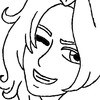HOME | DD
 Umintsu — I'm so sorry
Umintsu — I'm so sorry

#wicked #elphabathropp #fiyerotiggular
Published: 2014-11-13 01:12:02 +0000 UTC; Views: 6243; Favourites: 418; Downloads: 59
Redirect to original
Description
こんな姿になってしまった自分とこんな姿にしてしまった自分を謝罪する二人とか想像してたらもうだめでしたorzRelated content
Comments: 22

I like the drawing a lot. But I don't think it resembles Wicked the novel at all, so I don't like it for that reason. I couldn't say how it relates to the musical though, as I haven't seen it and I assume it's different that the book.
👍: 0 ⏩: 1

It very deeply resembles the musical. It depends on your taste, but I believe the musical is better than the book.
👍: 0 ⏩: 1

I only read the novel. And I ask myself how I was able to read the whole thing. I am sure the musical is far better for the simple reason it /isn't/ the novel.
👍: 0 ⏩: 1

I read Wicked a few years ago, and hated it. Then I saw the play last year and LOVED it. I decided to give the book another try, just in case I’d been wrong. Nope, I still hated it. The book has almost nothing at all to do with the play, other than sharing the same characters and a couple settings.
I myself found it really hard to read the novel, I mean no disrespect to Gregory Maguire but I felt like the books writing was really poor.I mean the main premise of this book is for us to try to understand the Witch better, right? Well, by the end of the book she’s actually more despicable than I had thought she was in the movie/original book. In the movie/book, I think the Wizard is the villain, not the Witch. Think about it. A little girl goes to the Wizard for help. He says he’ll help, but only if the little girl acts as an assassin and goes to kill the Witch. Dorothy doesn’t want to do it, but feels she has no choice. After that, the Witch’s actions are all self-defense. She knows Dorothy is her intended assassin — what is she supposed to do, sit and wait for her to come and kill her? We as viewers know that Dorothy could never intentionally kill anybody.
At the end of the book Wicked I'm convinced that she's a villain, I mean look at the way she treats her son. I mean yeah, she’s not entirely sure he’s her son, but when she leaves the convent the other nuns make her take the child with her. The narration makes it very clear that he is her son, referring to Fiyero as the father, etc, so we know he is. But whether or not he’s her biological son is beside the point. He’s her responsibility either way because she’s accepted custody of him. But she totally ignores him. She has no idea where he sleeps (on the floor in one of the children’s rooms), what he eats, what he does (lives in constant torment by the other children). He’s so unloved that he will do anything for approval, including getting kicked around by the cruel other children. Elphaba sees this and doesn’t care, nor does she lift a finger to stop it. Then one day Liir is playing hide and seek with the other children, and one of them convinces him to hide in the fishwell, where he can’t get out on his own. Then the kid leaves him there where he sits for DAYS and almost dies. During this time Elphaba doesn’t even realize he’s gone! It’s this that really convinces me she’s a villain. I liked some other aspects of it, but this is what really made me hate her. I couldn’t like anyone who treated their own child that way.
As far as I’m concerned, the only good thing that came of Wicked, the book, is that it gave someone the idea to make Wicked, the musical. This play is great! I like musicals in general, and this was better than average. It was everything the book should have been. Instead of being a meandering, slow-moving plot about a despicable character, it tells us about an Elphaba that I can actually relate to. The play is much more focused on the friendship between Glinda and Elphaba, which gave it a much stronger core. In the book, the two were only anywhere near each other in one section.
The musical is focused around both of them, starting at Shiz, the college they both went to, and progressing to their meeting of the Wizard. From there, their paths diverge, but they are still both relatable. They both want to change the world, but Glinda tries to do so by society-approved advancement through government, and Elphaba tries her own radical ways. We already know how this works out for them, of course, but I still rooted for Elphaba because she was clearly a good person at heart with a good cause.
I should note that the play deviated from every other version in major ways. It wasn’t particularly faithful to any of the other renditions. But the ways it veered off the beaten path were so compelling, and they made such sense with the world of Oz that I didn’t mind at all.
For one thing, the origin of the scarecrow and the tin man were totally different, but the way they were changed tied them very closely to Elphaba’s story. Their original backstories were fine for the original book, because they didn’t have to be tied closely together to the witch.
The Tin Man in this rendition turns out to be Boq. While they’re in school Boq has a crush on Galinda, but she convinces him to take pity on Elphaba’s sister Nessarose, because Nessa’s in a wheelchair. He asks her out, and then never has the nerve to break it off. She becomes mayor of Munchkinland to the East, and eventually labeled the Wicked Witch of the East. She’s so afraid that he’ll leave her that she never lets him leave, always keeping him cooped up even though he wants to travel. He feels smothered, and one day during an argument about Glinda, Nessa angrily tries to put him under a love spell but due to her inexperience with magic, she accidentally shrinks his heart. Elphaba tries to save his life, and using the Grimmery, the magic book given to her by the Wizard, which she barely understands, she tries to find a spell that will save him. Instead of healing him, the spell changes him to a form where he doesn’t need a heart at all — the Tin Man.
The Scarecrow turns out to be Fiyero. In the musical, the Wizard makes him become engaged to Galinda, and he works in the military for the Wizard, but only because it gives him a chance to find Elphaba. The night Galinda is throwing an engagement party, Elphaba returns to the Wizard's palace to free the monkey servants and comes across the Wizard himself. He tries once again to convince her to work with him, telling her that he is not evil - just a mediocre man who came into his position by chance, led to stay by the reverence of the Ozians, and he offers to redeem Elphaba's reputation. She is almost won over, until she sees Dr. Dillamond, who has lost the power of speech. She vows to fight the Wizard until the end. Fiyero and the guards enter, followed by Glinda. Fiyero helps Elphaba escape, and decides to escape with her, leaving Glinda behind. Though she was broken-hearted, Glinda reminds the Wizard and Madame Morrible that the way to recapture Elphaba is to make her think her sister is in trouble, and she will be sure to come to her rescue. Fiyero and Elphaba spend a night together in the forest. Their happiness is interrupted when Elphaba suddenly has a vision of a house flying through the sky and Nessarose being in pain. Before Elphaba leaves to investigate, Fiyero tells her about a castle that his family owns that she can stay in. Glinda and Elphaba meet again at the site where Nessarose has been crushed by a house with a girl named Dorothy inside. Fueled by the rivalry over Fiyero, the two have a heated argument. The guards arrive, and Elphaba guesses that Glinda arranged for all of this. Fiyero arrives as well, and holds Glinda hostage until Elphaba can escape. Glinda realizes that Fiyero does truly love Elphaba, and tells the guards not to hurt him, but they don't listen as they escort Fiyero to the field where they can interrogate him into revealing where Elphaba has fled to so they can recapture her. Elphaba tries to cast a spell to save his life and protect him from injury, but is frustrated by the limitations of her power. She decides that from this point on, she will live up to her reputation as the Wicked Witch of the West. Later on back at the castle, Fiyero (now a scarecrow) comes to the spot where Elphaba was melted. Making sure that no one is observing, he knocks on the floor and out from a trap door steps Elphaba, very much alive; revealing that the entire thing was a ruse to convince her enemies of her death and to ensure her future with Fiyero, who was transformed into the scarecrow by her spell in the process. Before leaving, Elphaba regrets that she'll never see Glinda again and tell her that she and Fiyero are alive.
The Nessarose portrayed in the book and the play are totally different in almost every way. They’re both crippled, but with totally different disabilities. In the book, she has no arms. This makes her very dependent on other people — she can’t even walk unless someone helps her balance. While in the play she’s in a wheelchair. Book — she’s a religious zealot, following the religion of her father, but using it to become a Tyrant in the East. I couldn’t find anything about that Nessa to like. Play — she’s very sweet woman, and it’s easy to feel bad about her bad fortune in life. It’s very sweet when Boq asks her out to the dance, and I really enjoyed seeing her face light up, even though I figured it would end badly one way or the other.
Again, Maguire seemed to go out of his way to make sure every character was totally unlikeable. Just because a character is labeled as a villain doesn’t mean they can have no redeeming qualities!
👍: 0 ⏩: 0

OH MY GOSH THIS IS BEAUTIFUL!!!! I love Wicked so much <3
👍: 0 ⏩: 0

I loved Wicked, but why did so many sad things have to happen? WHY?
Great picture.
👍: 0 ⏩: 0

And then I hear "I ask forgiveness for the things I've done you blame me for..." from nowhere. Great art. Great theme. Great style. World has been changed for good really, REALLY.
👍: 0 ⏩: 0

OMG I'm gonna cry It's really beautiful and so powerful...
👍: 0 ⏩: 0

I loved Wicked. This is a powerful, beautiful piece of art.
👍: 0 ⏩: 0

Ah. Didn't realize Scarecrow was a character in Wicked. Should have noticed the hashtag, I suppose.
👍: 0 ⏩: 1

He was almost a cheat character. XD
(In the play at least. I don't know about the book)
👍: 0 ⏩: 0





























